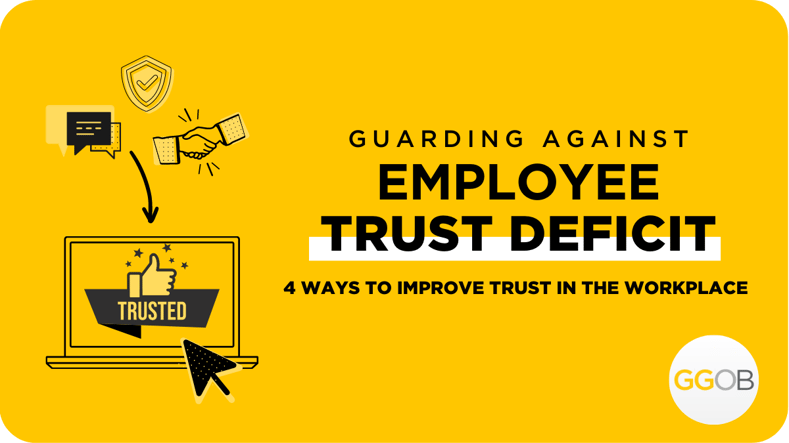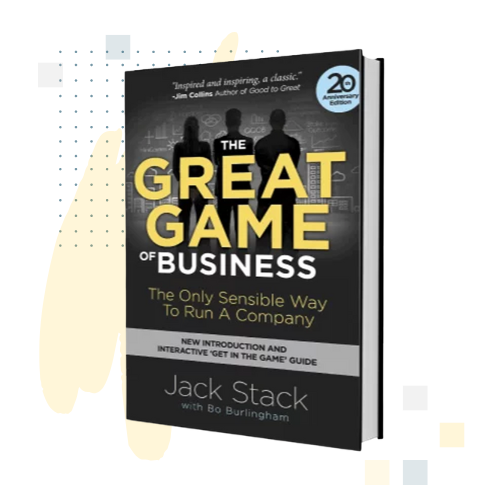
There has been a decline in public trust in institutions and businesses in recent years. This goes beyond the company-customer relationship and is impacting employees and the way they relate to the people they work for.
Experts call this a trust deficit.
What is Trust Deficit?
Trust deficit is a lack of trust between businesses and their customers, employees, and other stakeholders. It can be caused by a number of factors, such as corporate scandals, data breaches, and government regulation.
Trust deficit can have many negative consequences for businesses, including:
- Reduced sales and revenue
- Increased costs
- Difficulty attracting and retaining employees
- Damage to brand reputation
- Increased risk of litigation
These are all dangerous problems for U.S. businesses, and we're already seeing their negative effects.
It started with disengagement, which caused productivity to plummet. Then it became quiet quitting, and now it's getting worse.
According to a recent article in the Wall Street Journal:
"Half of workers aren't engaged on the job, putting in minimal effort to get by, according to research by Gallup…. Employee engagement, a measure of involvement and enthusiasm at work, in the U.S. declined for the second year in a row. There is also a growing share of the workforce that is disengaged, or resentful that their needs aren't being met. In some cases, these workers are disgruntled over low pay and long hours, or they have lost trust in their employers."

Data provided by Gallup
This lack of trust affects businesses of all sizes, but it can be particularly challenging for Small and Medium-sized Businesses (SMBs) that may not have established a strong reputation or brand presence.
John Baldoni wrote about this earlier this month in SmartBrief. "What's happened is we're seeing separation or some more distance between employee and employer," Jim Harter told me in an interview. "People are feeling more distant from their employer."
And when there is this distance, employees also "start to become psychologically separated from the customer. And they're even telling us now that they feel less responsible for the quality of service customers receive," Baldoni added.
This was also discussed on the 21 Hats Podcast, which The Great Game of Business proudly sponsors.
Holding Trust Deficit at Bay
Trust is the foundation of any strong team. When team members trust each other, they are more likely to collaborate effectively, share information openly, and take risks. A lack of trust, on the other hand, can lead to miscommunication, conflict, and even sabotage.
4 Ways Companies Can Push Back Against Trust Deficit
Be fair
Always be fair in your dealings with your team. This means treating everyone equally and fairly and not playing favorites. When team members feel like they are being treated fairly, they are more likely to trust you and each other.
Be consistent
Another critical factor in building trust is consistency. This means doing what you say you're going to do, and following through on your commitments. When team members know that they can count on you to do what you say, they are more likely to trust you.
Be transparent
Increasing transparency is a response to the trust deficit and a way to rebuild confidence among stakeholders. With transparency, employees and other stakeholders can see whether a business is being managed in an accountable and ethical manner.
Transparency means sharing information openly and honestly, even if it's not always positive. When team members feel they have all the information they need, they are more likely to trust that you are making decisions in their best interests.
But there's a problem. If the employees don't fully understand the information the company is sharing with them and where it comes from, it won't have the intended effect. This leads to the fourth way companies are building trust among their employees.
Provide financial education
Being financially literate means having general knowledge of the fiscal and economic landscape of the business. This includes standard business terms like profit, balance sheet, and cost of goods sold, as well as understanding what drives these numbers and their implications for business operations.
The problem is that many employees are not. This means that the financial documents a company shares with them as part of its transparency efforts won't mean to them what management hopes it will.
That's why more companies are offering financial education as a regular part of their HR department's workforce development program.
When companies engage with The Great Game of Business, part of the effort focuses on financial literacy and business education from the top of the organization to the bottom, equipping all employees with business knowledge and the tools to participate in company discussions and decisions.
When employees understand the "secret language" of business and are encouraged to think and act like owners, everyone wins.
As Jack Stack, author of The Great Game of Business, says, "The best, most efficient, most profitable way to operate a business is to give everyone in the company a voice in how it's run and a stake in the financial outcome—good or bad." Company culture and employee engagement drive profitability and sustainability—linking Rapid Financial Results to Lasting Cultural Change™.
Find out more about creating a workplace where trust is the norm and teams can thrive. Schedule a call with a team member at The Great Game of Business today to learn more about our business coaching services.
Want to learn more about The Great Game of Business and how open-book management could benefit your organization?
Download our original book or get started with a free chapter.

Other items you might like:
.png)









.png)




-5.png)

